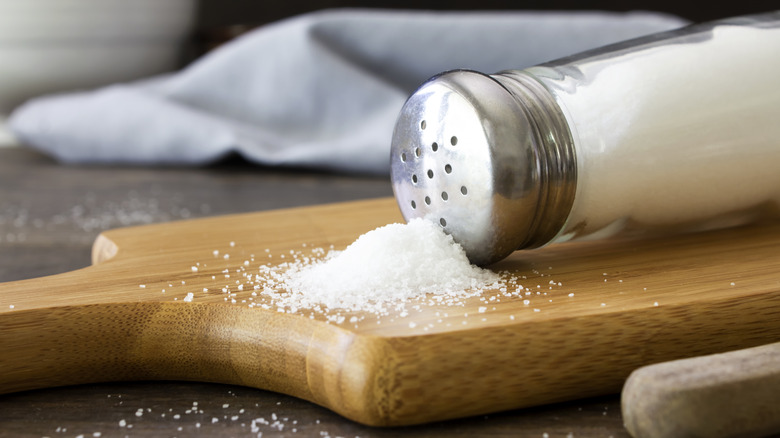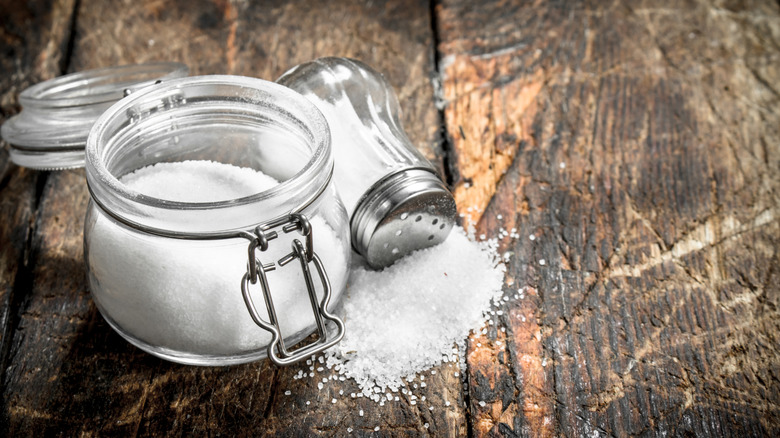Here's How To Tell When It's Time To Throw Out Your Salt
We may receive a commission on purchases made from links.
Salt may be the most important ingredient in your kitchen, but it's also underappreciated royalty. It's used for everything from seasoning popcorn to fixing bitter instant coffee, but like many hard-working pantry items, its expiration date may be the furthest thing from your mind. However, if you have pure salt, or salt that hasn't been fortified with iodine or mixed with other herbs and flavors, you can expect it to last forever. Salt is a natural preservative due to its ability to draw out moisture content; in doing so, the salt makes an uninhabitable environment for bacteria and other organisms looking to disrespect your food and increase your chances of illness. And while salt's durability is a great quality, if it's compromised, all that goes out the window.
There are several reasons you should toss salt — whether pure, iodized, or otherwise — in the bin. If the salt absorbs any humidity, that moisture can create clumps that make the salt difficult to work with. If that doesn't bother you, you can continue using the salt, but for a lot of us, the clumps are too much. Salt can also absorb odors from nearby items, like food or even air fresheners that sit in the same environment. If your salt is smelly, toss it. A third and possibly more obvious reason to throw your salt in the furthest trash can from your house is if there are bugs in it (unless etymology is your thing, of course).
Pure salt doesn't expire, but it's not invincible
The reason that pure salt doesn't expire is that it doesn't contain any additives or water, and in turn, nothing that can spoil. That isn't the case with salt that contains other ingredients. Himalayan salt, iodized salt, and any seasonal salts with added flavors will eventually expire. To help preserve all varieties of salt, make sure you're storing them properly.
Salt should be stored in an air-tight container and kept away from heat, sunlight, and moisture. This will help prevent anything from impacting your salt supply. It's best to use a glass jar and avoid any metal containers, as salt can corrode metal, which leads to contamination. If you struggle to find a worthy jar, some of my personal favorite food containers are the JoyJolt Air Tight Glass Jars, which also have labels in case you aren't sure if they contains salt or sugar and don't want to taste test. If you have an abundance of salt, it may be beneficial to keep only a small amount in a container on your counter while keeping the rest in your pantry or cupboard to prevent any possible mishaps.

